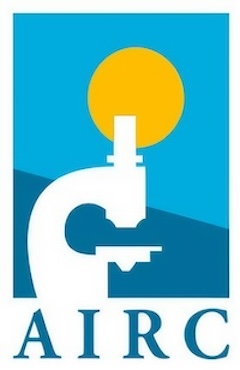Experimental oncology
Giorgia Foggetti

BIO
Giorgia Foggetti is a cancer biologist with more than 15 years of experience working with models of cancer. She received her PhD in Oncological Genetics from the University of Genova (Italy), where she studied p53 gain-of-function mutants and small molecules able to induce selective autophagy-mediated degradation of mutant p53 in human cancer cells. In 2016, Giorgia Foggetti moved to the United States and joined the Politi Laboratory at the Yale School of Medicine as a postdoc to generate and apply novel in vivo models of EGFR mutant lung adenocarcinoma. She leveraged these models to address fundamental questions related to tumor development and progression as well as timely translational questions related to sensitivity and resistance to targeted therapy.
Her postdoctoral work has opened up new avenues for lung cancer research and formed the foundation of her research program supported by an Italian Foundation for Cancer Research (AIRC) Start-Up and a Lung Cancer Research Foundation (LCRF) – AstraZeneca Research Grants to investigate the role of tumor suppressor pathways such as the KEAP1 pathway in drug sensitivity and resistance in EGFR-driven lung adenocarcinoma. More broadly, she interrogates whether and how genomic mediators affect lung cancer progression and drug resistance. Giorgia Foggetti and her team strive to gain insights into lung cancer biology and drug sensitivity with the common goal of making a long-lasting impact on the development of better treatments for patients with lung cancer.
Lung Cancer RESEARCH

Brief introduction
Targeted therapies based on oncogenic driver alterations have improved the survival of patients with cancer. However, heterogeneity of drug responses and emergence of resistance remain critical challenges in the field. Thus, there is a critical need to study the biology of these tumors to define better treatment strategies for subgroups of patients who do not benefit from standard therapy. Our Lung CAncer REsearch (Lung CARE) team mainly focuses on understanding the mechanisms that modulate therapeutic response and resistance in EGFR mutant lung adenocarcinoma.
Research Activity
We are part of the Medical Oncology Department and we successfully connected with the Thoracic Surgery Department and others to launch and lead the Lung Cancer Tissue Collection (LCTC) Institutional Program. This Program allows us to collect and cryopreserve tumor and peritumoral tissue and blood from patients with lung cancer that are enrolled in LCTC (data are available at BBMRI; co-PIs: Dr. Alessandra Bulotta, Medical Oncology Department and Prof. Giulia Veronesi, Thoracic Surgery Department). Indeed, the goal of our research is to generate patient-derived models of cancer to identify subsets of tumors that may need additional interventions.
We combine unique systems with an innovative mouse model of EGFR mutant lung adenocarcinoma that enables us to investigate molecular and cellular changes that underlie cancer initiation, progression, and drug response within the tumor microenvironment. By correlating our findings with clinical data, we aim to uncover potential biomarkers of reduced therapeutic sensitivity to develop new strategies. A close interaction with our clinical colleagues creates the potential for our findings to ultimately inform clinical trials towards a personalized medicine for patients with lung cancer.
2015 PhD in Oncological Genetics, curriculum: Oncological Genetics and Biology of Differentiation, University of Genova, Genova, Italy
2011 Italian Professional license in Biology, University of Genova, Genova, Italy
2011 Master’s Degree in Cellular and Molecular Biology, University of Genova, Genova, Italy. Final grade 110 cum laude and honors
2009 Bachelor’s Degree in Cellular and Molecular Biology, University of Genova, Genova, Italy. Final grade 110 cum laude
2023 – Present Project Leader, Experimental Oncology Division, IRCCS Ospedale San Raffaele (OSR), Milano, Italy
2021 – Present Principal Investigator, Medical Oncology Department, OSR – Vita-Salute San Raffaele University (UniSR), Milano, Italy
2021 – Present Sponsored Identity, Yale School of Medicine, New Haven, CT, USA
2022 Visiting Research Faculty, Yale School of Medicine, New Haven, CT, USA
2021 – 2022 European Respiratory Society (ERS) Long-Term Research Fellow, Medical Oncology Department, OSR, Milano, Italy
2021 Associate Research Scientist, Politi Lab, Medical Oncology and Pathology Departments, Yale School of Medicine, New Haven, CT, USA
2016 – 2020 Postdoctoral Associate, Politi Lab, Medical Oncology and Pathology Departments, Yale School of Medicine, New Haven, CT, USA
2015 – 2016 Researcher, Mutagenesis and Cancer Prevention Unit, IRCCS Ospedale Policlinico San Martino, Genova, Italy
2012 – 2015 PhD Student in Oncological Genetics, Mutagenesis and Cancer Prevention Unit, IRCCS Ospedale Policlinico San Martino, Genova, Italy
2009 – 2011 Master’s Student, Mutagenesis and Cancer Prevention Unit, IRCCS Ospedale Policlinico San Martino, Genova, Italy
2009 Undergraduate Student, Mutagenesis and Cancer Prevention Unit, IRCCS Ospedale Policlinico San Martino, Genova, Italy
2021 AIRC Start-Up Grant (5 years): ‘Genomic Mediators of Therapeutic Response in EGFR-Driven Lung Cancer’
2021 LCRF – AstraZeneca Research Grant Award (2 years): ‘Dissecting the Role of the KEAP1 Pathway in Mediating Therapeutic Sensitivity in EGFR-Driven Lung Adenocarcinoma’
2021 ERS Long-Term Research Fellowship (1 year): ‘Dissecting the Role of the KEAP1 Pathway in Mediating Therapeutic Sensitivity in EGFR-Driven Lung Adenocarcinoma’
2018 American-Italian Cancer Foundation (AICF) Postdoctoral Research Fellowship (2nd year renewal): ‘Drug Resistance and Metastasis in Lung Adenocarcinoma’
2017 American-Italian Cancer Foundation (AICF) Postdoctoral Research Fellowship
2012 Ministry of Education, University and Research (MIUR) PhD Research Fellowship 'Human's health: study and treatment of tumors and degenerative pathologies with new human genome knowledge-derived approaches' (3 years)
Laura Bettini, Master Student - bettini.laura@hsr.it
Virginia Guzzeloni, PhD Student - guzzeloni.virginia@hsr.it
Arianna Limongelli, Master Student - limongelli.arianna@hsr.it
Nerina Shahi, Postdoc Fellow - shahi.nerina@hsr.it
Samuele Valci, PhD Student - valci.samuele@hsr.it
